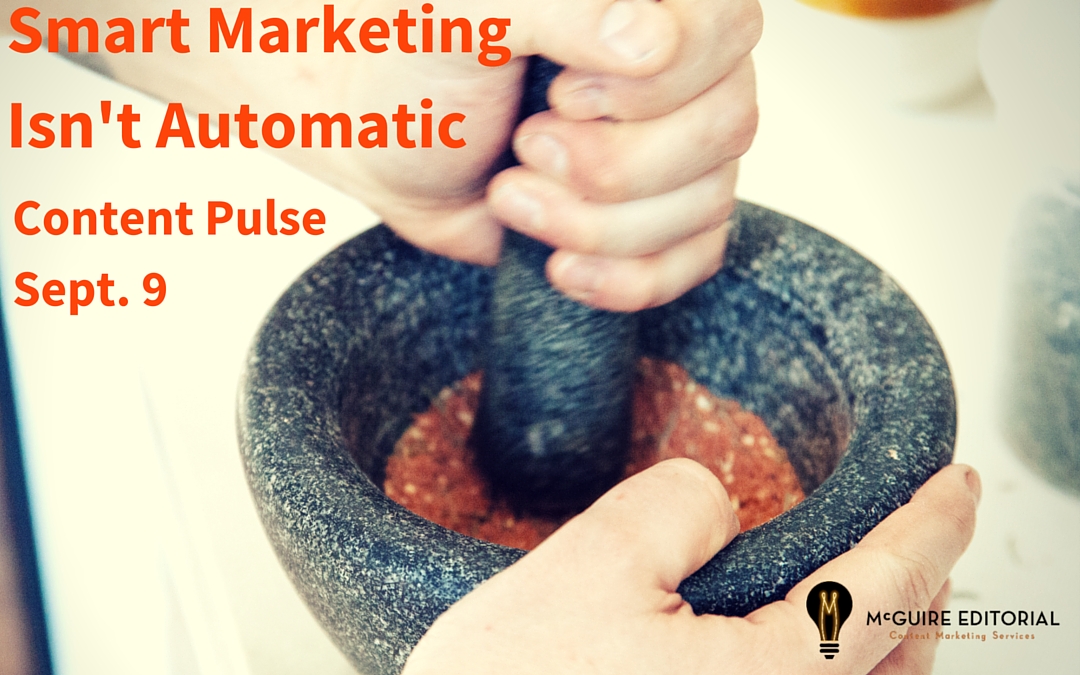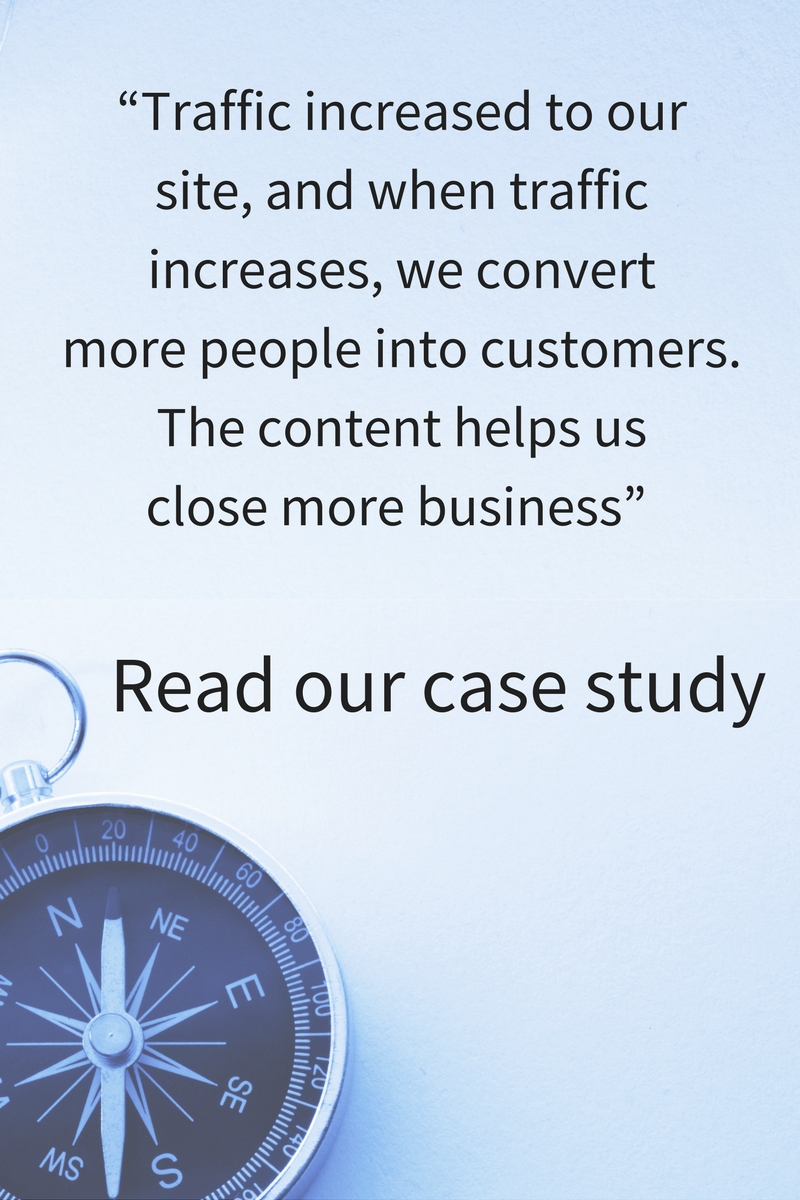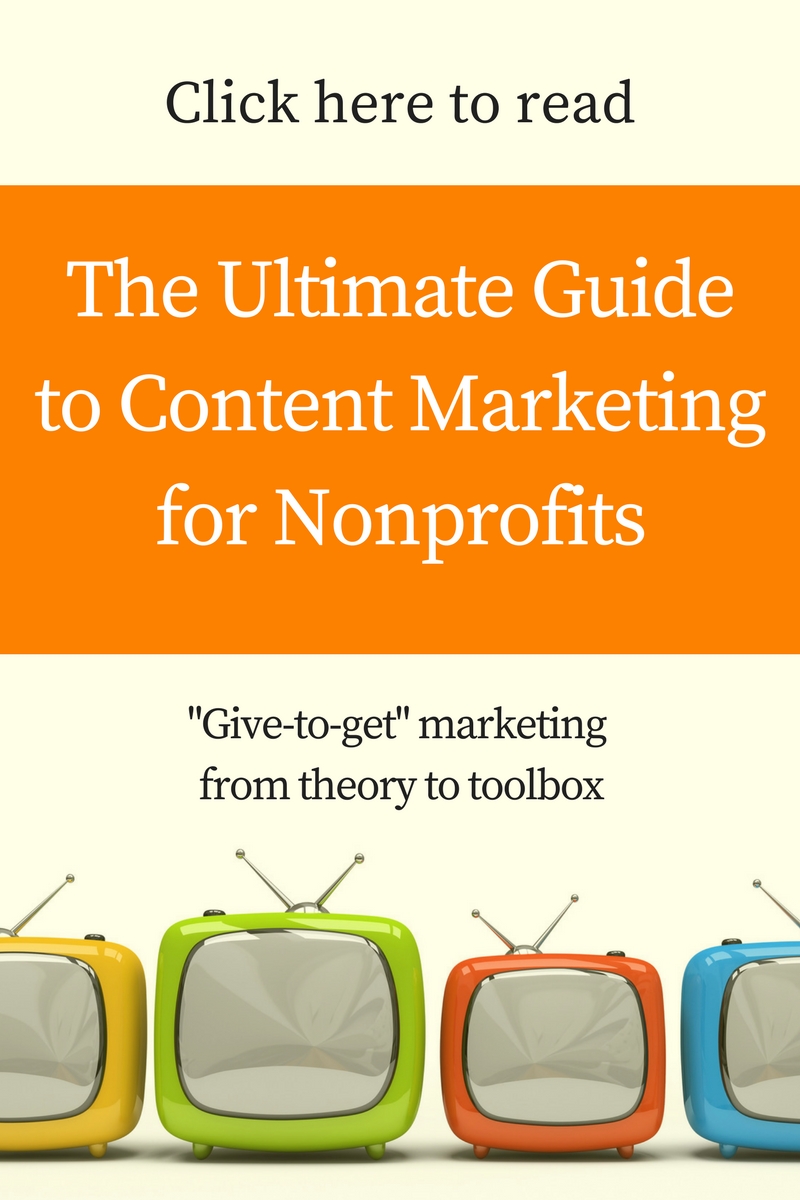One basic tension in digital marketing today is between the potential of automation and the resistance buyers have to being approached in an automatic way. The more it is possible to commoditize the delivery of marketing messages, the more marketers struggle with how to personalize the messages and keep them real.
The delivery mechanisms can be cranked up faster and faster, but there is no easy recipe for smart marketing that includes content creation.
We can see that tension in several of the articles in this week’s Content Pulse. Ad blocking on the rise, display advertising revenues dropping, frustration with agencies . . . it all hints at the importance of strong content, even if it can’t be created at the scale that martech is able to deliver it.
Display CPM giving way to content for LinkedIn
LinkedIn’s success with content marketing correlates with a decrease in ad revenue, according to a summary of the Q2 earnings call in AdExchanger.
LinkedIn CFO Steve Sordello said, “Our investment continues to move away from display and toward product areas that best leverage our unique data assets to maximize member experience and customer ROI.”
For example, the company is relying less on CPM and more on content marketing and native advertising. The earnings call also noted that:
- 52% of all traffic to LinkedIn comes from mobile.
- The company had a 30% dip in display ad revenue during the past few years.
- The LinkedIn Marketing Solutions business grew 32% in the second quarter to $140 million.
- LinkedIn’s Sponsored Updates account for nearly 50% of Marketing Solutions’ total revenue, with 80% of the units viewed on mobile.
Ad blocking becoming the norm
Ad blocking has exploded, according to an extensive ad blocking report from Adobe and ad serving software company PageFair. Some of the findings include:
- Ad blocking is estimated to cost publishers $22 billion this year.
- Ad blocking grew 41% globally in 12 months.
- U.S. ad blocking grew 48% to reach 45 million active users by June 2015.
Putting the smart in smart marketing
A new martech strategy that leverages data and storytelling is a concept called content sequencing: a solution that could help brands deliver ads based on what has already been seen and to avoid repeatedly presenting consumers with the same piece of content.
A new tech firm called OneSpot says its technology does this by using machine learning, data intelligence and predictive modeling. Big CPG companies such as Mondelez International have signed up after receiving many complaints from customers who felt bombarded with content and ads, particularly videos.
CMOs are looking past traditional ad agencies and toward content marketing
The vast majority of CMOs surveyed for a CMO Council whitepaper are looking past traditional ad agencies and are seeking “specialized solutions” instead to cope with growing data challenges.
“The Path Forward: Marketing’s Outlook Into The Digital Future Report” finds that this change comes from a need to address the increased use of data-driven tactics such as content marketing.
Related: We noted an interesting think piece on the “retreat from the agency model” in a previous Content Pulse.
AOL CMO Allie Kline on where real value lies
One of my favorite quick reads recently is an interview with AOL Chief Marketing Officer Allie Kline on Marketing Land. She talks especially about how providing value to the target consumer has to be the priority.
Kline says balancing “culture and code” is the key to success in content marketing at AOL, meaning campaigns should be data-driven, tailored to the brand and geared toward the right audience. Consumers easily detect inauthenticity, so focusing on helping them — rather than advertising — drives purchases.
The advertising industry is entering an “era of disruption,” Kline says, where a cluttered advertising field will limit innovation. Content marketing should simplify the market and give customers more breathing room.
Millennials shop online similarly to Gen X and Boomers
People tend to cast millennials as unique, but many of their behaviors are similar to those of other generations, according to a survey by marketing technology firm Adroit Digital. They browse in stores about the same and respond to mobile ads vs. desktop ads about the same as older generations, for example. The study also found that:
- A majority of millennials, gen X and boomer shoppers said online and mobile advertising affects what they purchase.
- 55% of all groups said online review sites are the social media that affects their purchases the most.
- One-click purchasing is a big factor for about 68% of all groups.
Aspirational, but not necessarily authentic
Meredith Corporation (which this week announced a merger with Media General to form a new company called Meredith Media General) surveyed millennial women on social media marketing and consumer behaviors and find that they are optimistic about the future but are not entirely honest on social and don’t expect their peers are either. Some of the findings of Women 2020 include:
- Millennial women are concerned with authenticity on social media, believing most people lie on it. 31 percent admit they don’t tell the whole truth.
- About three-fourths believe they will be happier, better off or have more opportunities by 2020.
- Millennial women value price and recommendations from peers and influencers above all else when it comes to purchase decisions.
- 55% say they are frequent recommenders themselves.
- Jennifer Lawrence is the top representative of their generation, and Ellen Degeneres is the biggest role model.
How SEO could affect elections
Search engine rankings and ads can sway votes and validate people’s feelings toward candidates, according to a study from the Proceedings of the National Academy of Sciences. Voters were presented with a rigged search engine resembling Google and asked to research candidates in a local election. Researchers manipulated what results were presented at the top and found that people were 20% more likely to support the candidate that search engines favored.
By the way, we have our own look at marketing and electoral politics in A Campaign About You: How Content Marketing Could Help Elect the Next President.
In all sincerity
Thanks for reading. If you know of any data or developments on digital marketing that should be included in the next Content Pulse, please let us know. And if you’d like to get this news digest in your email, sign up below.
Joseph Rauch contributed research and writing to this article.
Follow Us
[nino_social_custom nino-size-64 nino-css3-style-7 nino-social-style-3 nino-align-center nino_social_linkedIn:robertwmcguire nino_social_twitter:robertwmcguire nino_social_social-google:115072345633828765009%2F nino_social_quora:http%3A%2F%2Fwww.quora.com%2FRobert-McGuire-1%2Fanswers nino_social_email:robert%40mcguireeditorial.com]




